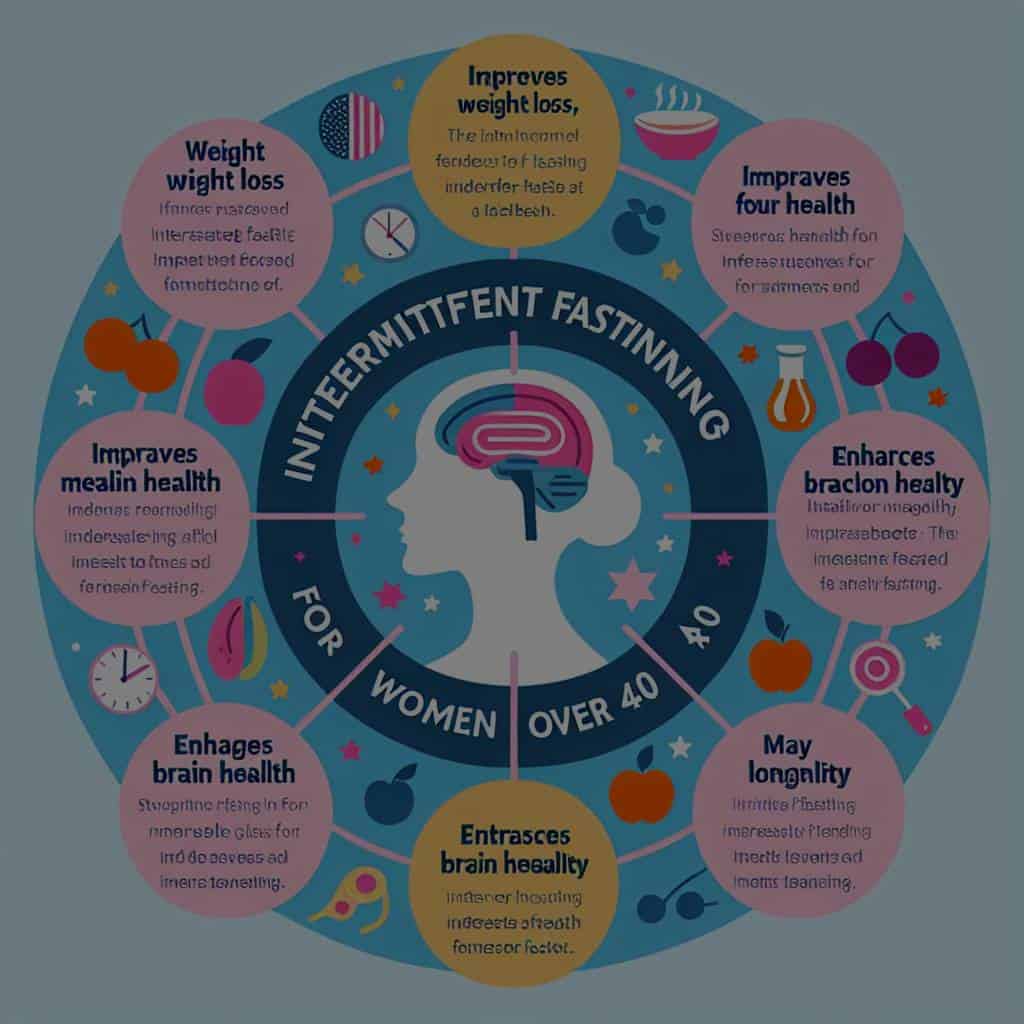What Are the Health Benefits of Intermittent Fasting for Women Over 40?

Intermittent fasting, a method of timed eating, has gained significant attention in the arena of weight loss and health improvement. Particularly for women over 40, who often find themselves fighting against a slower metabolism and hormonal changes, intermittent fasting could offer a useful strategy. In this article, we present a comprehensive look at how intermittent fasting works, its effects on the body, and the unique benefits it can provide for women over 40.
Understanding Intermittent Fasting
Before we delve into the benefits of intermittent fasting, let’s take a moment to understand what it is. Intermittent fasting is an eating pattern where you oscillate between periods of eating and fasting. Unlike a diet plan, it does not specify what foods to eat, but rather when to eat.
Sujet a lire : What Are the Effects of Progressive Muscle Relaxation on Chronic Tension Headaches?
There are several methods of intermittent fasting, but most involve choosing a specific window of hours during the day for eating, and then abstaining from food for the remainder. For example, the 16/8 method involves fasting every day for 14-16 hours and restricting your daily eating window to 8-10 hours. During the eating period, you can have two, three or more meals.
Recent studies have indicated that when you eat could be just as important for health and weight loss as what you eat. A study published on PubMed and PMC suggests that intermittent fasting could have a variety of health benefits, from weight loss to improved insulin levels and beyond.
A découvrir également : Can Cognitive Training Programs Improve Memory in Individuals with Mild Cognitive Impairment?
Intermittent Fasting and Weight Loss
One of the primary reasons many women over 40 turn to intermittent fasting is for weight loss. As we age, our metabolism naturally slows down. This means that even if you’re not eating more than you used to, you can still gain weight. This is where intermittent fasting can help.
Intermittent fasting can aid weight loss by optimizing your body’s fat burning process. It does this by adjusting your eating schedule to align with your body’s natural rhythms. A study published on PMC found that participants who practiced intermittent fasting were able to lose weight and decrease their body fat percentage without significantly altering what they ate.
During a fasting period, your body changes hormone levels to make stored body fat more accessible. Insulin levels drop, which facilitates fat burning. Simultaneously, growth hormone levels increase, which benefits fat loss and muscle gain.
Intermittent Fasting and Women’s Health Over 40
Apart from weight loss, intermittent fasting can offer several other health benefits for women over 40. As women age, they face a variety of health concerns, including increased risk for heart disease, bone loss, and hormonal imbalances.
Intermittent fasting can help improve heart health by reducing various risk factors such as inflammatory markers, blood sugar, and insulin resistance. A study from PubMed demonstrated that fasting could reduce LDL cholesterol and blood triglycerides, two key risk factors for heart disease.
Further, intermittent fasting can influence women’s hormone health. Research shows it can improve insulin resistance, helping balance hormones naturally. This can be particularly beneficial for women over 40, who often experience hormonal fluctuations that can lead to symptoms like fatigue, hot flashes, and weight gain.
The Side Effects of Intermittent Fasting
While the health benefits of intermittent fasting can be remarkable, it is also important to be aware of potential side effects. It’s not uncommon to feel hungry or fatigued during the fasting periods, especially when you’re first starting out.
Also, intermittent fasting might not be suitable for everyone. If you have a history of eating disorders or are pregnant or breastfeeding, you should consult with a healthcare provider before starting any fasting regimen. It’s always a good idea to listen to your body and adapt the method to your needs.
Intermittent Fasting: A Scholar’s Perspective
Scientific scholars have also weighed in on intermittent fasting, lending further credibility to its benefits. These health experts agree that this method of eating can be a powerful tool in the management and prevention of several chronic diseases.
In a review of existing research, scholars found evidence supporting the benefits of intermittent fasting on several fronts: weight loss, insulin resistance, inflammation reduction, and overall heart health improvement. This evidence emphasizes the potential role of intermittent fasting as a preventive and therapeutic approach in healthcare.
Remember, while intermittent fasting can be a powerful tool, it should be looked at as a part of an overall healthy lifestyle that includes balanced eating and regular physical activity. Always consult your healthcare provider before starting any new health regimen.
Healthier Aging with Intermittent Fasting
Intermittent fasting can play a pivotal role in promoting healthier aging for women over 40. Alongside the benefits already mentioned, intermittent fasting can also aid in maintaining overall cognitive health, bone density, and gut health, which often become factors of concern as women age.
Cognitive health, particularly, is a noteworthy benefit of this dietary regimen. The PMC free article on the subject underscores that intermittent fasting can enhance brain function, potentially delaying the onset of Alzheimer’s disease and other forms of dementia. This is believed to be due to the body’s increased production of a protein known as BDNF (brain-derived neurotrophic factor) during periods of fasting, which is crucial for learning, memory, and overall brain health.
Bone health, too, can be improved with intermittent fasting. This eating pattern can help slow down the rate of bone loss that typically accelerates after the age of 40. A PubMed Google scholar article suggests that fasting can stimulate autophagy, a process where your body recycles worn-out cells, including those in your bones, potentially leading to stronger, healthier bones.
Lastly, intermittent fasting can help nurture a healthy gut. The gut microbiome, which plays a crucial role in overall health and well-being, can be positively influenced by the timing of meals. Intermittent fasting can help reset the gut microbiota, leading to improved digestion and nutrient absorption.
The Role of Intermittent Fasting in Women’s Health: Conclusion
Intermittent fasting has indisputable potential to improve the health of women over 40. From aiding weight loss to enhancing heart health, balancing hormones, promoting healthier aging, and even reducing the risk of chronic diseases, this method of eating has a plethora of benefits.
While the research behind it is robust, it’s essential to remember that any changes to your diet should be made in consultation with healthcare professionals. If done correctly and under proper supervision, intermittent fasting can be a game-changer for women over 40.
Regardless of your goals – whether it’s to lose weight, balance insulin resistance, or just promote healthier aging – intermittent fasting can be a valuable tool in your health arsenal. However, it’s not a magic bullet. It should be combined with a balanced diet, regular physical activity, adequate sleep, and healthy stress management techniques for optimal results.
Finally, do bear in mind that everyone’s body responds differently to dietary changes. While intermittent fasting may yield tremendous benefits for some, it might not work as effectively for others. The key is to listen to your body, adjust as needed, and always prioritize overall health over short-term results. As the Google scholar article on intermittent fasting emphasizes, this is not just about dieting, but about adopting a holistic lifestyle approach that promotes long-term health and well-being.
